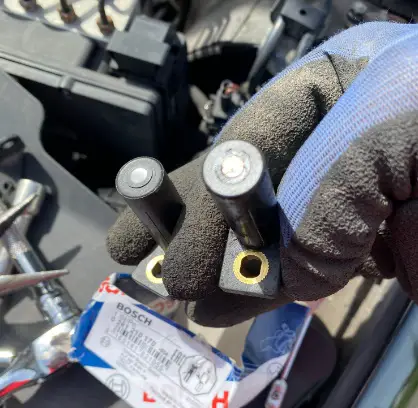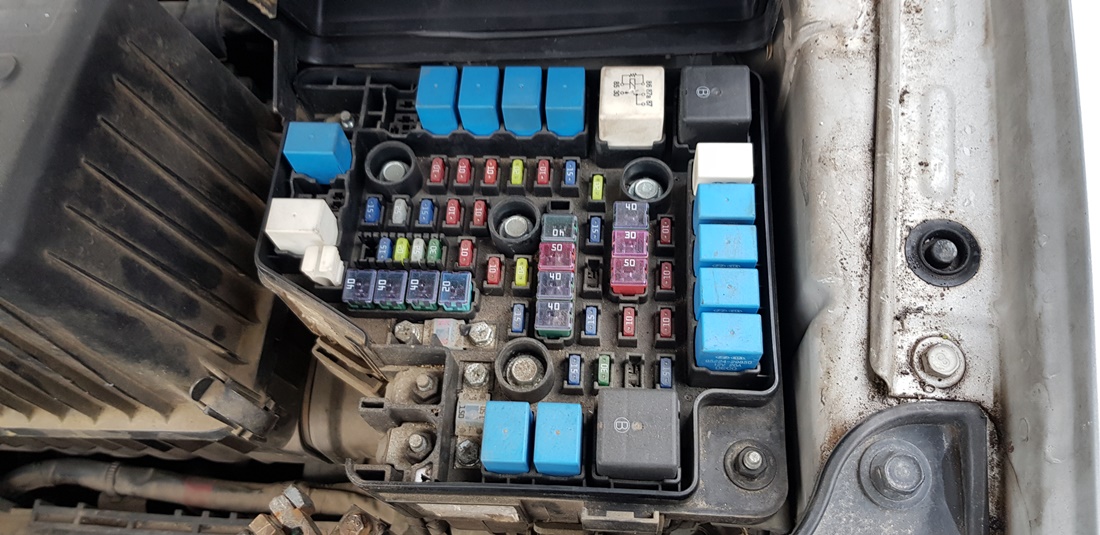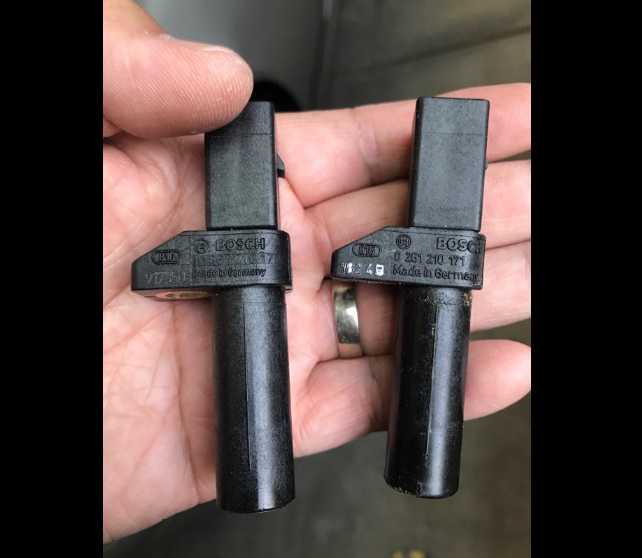If you are driving down the road and your car starts accelerating by itself, it’s a situation that none of us wants to be in.
Just shift your car from a gear into neutral and start braking until you come to a complete stop. Your car can also start revving while in neutral or in park on its own. Here is why this is happening:
Key Takeaway
- If your car starts accelerating by itself it could mean only one thing: If your older model car starts accelerating by itself it’s because the throttle cable is stuck. If your newer model car starts accelerating by itself it’s because the computer sensor that makes the throttle open is faulty.
- To fix sudden acceleration in a car, it’s advised to apply the brakes steadily and firmly, shift into neutral if the car has an automatic transmission, and avoid turning off the engine as it can lead to the loss of power brakes and steering.
- If your car keeps accelerating, you should put the transmission in neutral or depress the clutch to disengage the engine from powering the vehicle forward, while applying steady and firm brakes.
Why is My Car Accelerating By Itself

A car accelerating by itself is typically a sign of system malfunctions, which could be due to a faulty idle air control valve, issues with the throttle or throttle cable, cruise control problems, or a malfunctioning throttle position sensor.
A car accelerating by itself is usually an indication of a malfunction in the vehicle’s systems. There are several reasons why this might happen.
One common cause is a faulty idle air control valve. The idle air control valve is responsible for managing the engine’s revolutions per minute (RPM). When it’s faulty, it could lead to the vehicle accelerating on its own.
Another potential cause could be a sticking throttle or a problem with the throttle cable. If the throttle plate sticks or the cable is jammed, it can cause the car to accelerate without input from the driver.
Cruise control issues may also lead to a vehicle accelerating on its own. If the cruise control system malfunctions, it could potentially cause the car to speed up unexpectedly.
Furthermore, a malfunctioning throttle position sensor can also cause unintended acceleration. This sensor tells the car’s computer how far the gas pedal is pressed down. If it sends incorrect information, it could cause the car to accelerate.
Lastly, in some cases, sudden unintended acceleration can occur due to driver error, like pedal misapplication. This happens when the driver accidentally presses the accelerator instead of the brake.
How Do You Fix Sudden Acceleration In a Car?
Here is how to fix sudden acceleration in a car:
1. Inspect and Replace the Idle Air Control Valve
The idle air control valve manages the engine’s RPM. If it’s faulty, it could cause the vehicle to accelerate unexpectedly.
- Locate the idle air control valve. It’s usually located near the throttle body of the engine.
- Disconnect the negative battery cable before starting the work for safety.
- Remove the electrical connector from the idle air control valve.
- Unbolt the idle air control valve from the throttle body and remove it.
- Inspect the valve for signs of damage or wear. If it appears to be faulty, replace it with a new one.
- Bolt the new idle air control valve onto the throttle body and reconnect the electrical connector.
- Reconnect the negative battery cable.
2. Check the Throttle and Throttle Cable
A sticking throttle or a jammed throttle cable can also cause sudden acceleration.
- Inspect the throttle plate for any signs of sticking. If it’s dirty, clean it using a throttle body cleaner.
- Check the throttle cable for any signs of jamming or damage. If it appears to be damaged or worn out, replace it.
3. Troubleshoot Cruise Control Issues
If the cruise control system malfunctions, it could potentially cause the car to speed up unexpectedly.
- Check the cruise control fuse and replace it if it’s blown.
- Inspect the cruise control switch and wiring for any signs of damage or wear. If they appear to be faulty, replace them.
- If the problem persists, consider having a professional diagnose the issue as it may involve more complex electrical components.
4. Inspect and Replace the Throttle Position Sensor
A malfunctioning throttle position sensor can also cause unintended acceleration.
- Locate the throttle position sensor, which is typically mounted on the throttle body.
- Disconnect the electrical connector from the throttle position sensor.
- Remove the screws holding the throttle position sensor in place and remove it.
- Inspect the sensor for signs of damage or wear. If it appears to be faulty, replace it with a new one.
- Install the new throttle position sensor and reconnect the electrical connector.
5. Check for Driver Errors
In some cases, sudden unintended acceleration can occur due to driver error, like pedal misapplication. This is more of a behavioral fix than a mechanical one – ensure that you’re pressing the correct pedal when driving.
After performing these steps, if the problem persists, seek professional help. Sudden acceleration can be dangerous and should be addressed immediately says Cars From Japan.
What To Do If The Car Keeps Accelerating?

If your car starts accelerating by itself, do not panic. There is an easy way to get yourself out of that dangerous situation.
1. Shift To Neutral

The first that you want to do if your car starts accelerating by itself is to shift to neutral. Once the transmission is in neutral it will no longer be physically connected with the engine.
Meaning, the engine is no longer sending power through the transmission to the wheel so it can’t accelerate anymore.
2. Apply Brakes

Once you cut the power supply, it’s time to start applying brakes like you would normally do to stop. At this point, the engine is revving but it is not accelerating.
Even though you will hear loud noises from the engine, do not turn your vehicle off because you will lose power brakes and power steering and you don’t want that. Just apply the brakes to come to a complete stop and then turn off your vehicle.
3. Turn on Hazard Lights

If your car starts revving and accelerating while you are driving in a quiet street, you can stop without worrying about traffic. But, if your car starts to act weird while you are on the highway, it’s a different story. You could have cars coming from all sides.
That is why it’s important to turn on your hazard lights. Once the drivers around you see that you have the hazard lights on, they will know that something is wrong and will make room for you.
4. Take Safety Measures

Again, if you are in a quiet street, no worries. But, if you are on the highway, make sure that you put the warning triangle to let know the drivers that your vehicle is parked.
Also, if you have a fluorescent jacket in your vehicle, put it on. Once you placed the warning triangle, move away from the highway and call a tow truck.
Is Sudden Acceleration Bad For Car?
Sudden acceleration can be bad for cars because once your vehicle starts accelerating the RPMs will increase and your vehicle will do a mechanical over-rev.
A mechanical over-rev is when your engine RPMs are close or above the red line which will cause a collision between the valve float and pistons because the valve float is still closing and the pistons are rising faster than normal.
What is the red line? Simply put it’s the maximum speed in RPMs that your engine can run safely without causing damage to itself. This is typically denoted by a red line or red section on your tachometer.
The red line is usually set significantly below the RPMs which your engine can actually withstand. The red line varies with a lot of factors including component weight stroke and the displacement of your engine.
You’ll notice that diesel engines typically have a much lower red line than gasoline engines.
Why Is My Car Accelerating While In Park?
- Faulty idle air control valve
- Sticking throttle
- Problem with the throttle cable
- Malfunctioning throttle position sensor
- Cruise control issues
- Engine vacuum leak
- Contaminated or clogged mass air sensor
- The acceleration cable gets stuck
- Issues with engine maintenance
FAQs
Q: What should I do if my car starts accelerating uncontrollably?
A: If your car starts accelerating uncontrollably, the first thing you should do is stay calm. Try to brake gently and shift your car into neutral. Avoid turning off the ignition while your car is still moving, as this can lock the steering wheel. Once you have safely brought your car to a stop, have it towed to a trusted mechanic for diagnosis and repairs.
Q: Can a faulty throttle position sensor cause my car to accelerate by itself?
A: Yes, a malfunctioning throttle position sensor can cause your car to accelerate by itself. This sensor provides feedback to the engine control unit (ECU) about the position of the throttle. If the sensor is faulty and sends incorrect signals to the ECU, it may result in unintended acceleration.
Q: How can I tell if my car’s throttle body needs to be replaced?
A: There are a few signs that indicate a faulty throttle body. You may experience sudden or unexpected acceleration, difficulty in accelerating smoothly, or a high idle speed. Additionally, your car’s Check Engine Light may illuminate. If you notice any of these symptoms, it is recommended to have your throttle body inspected and replaced if necessary.
Q: Can a stuck accelerator pedal cause my car to accelerate on its own?
A: Yes, a stuck accelerator pedal can cause your car to accelerate on its own. This can happen due to a mechanical issue, such as a broken return spring or a buildup of debris. It is important to address this issue promptly to avoid potential accidents. If you cannot release the accelerator pedal, try shifting your car into neutral and safely pull over to the side of the road.
Q: Is it safe to drive my car if it’s accelerating unexpectedly?
A: No, it is not safe to drive your car if it’s accelerating unexpectedly. This issue can cause loss of control and potential accidents. It is highly recommended to stop driving the car immediately and have it inspected by a professional mechanic to diagnose and fix the underlying problem.
Q: Can a faulty cruise control system cause my car to accelerate by itself?
A: Yes, a faulty cruise control system can cause your car to accelerate by itself. If the cruise control module or its associated components malfunction, they may send incorrect signals to the engine, leading to unintended acceleration. Have your cruise control system checked by a qualified technician if you suspect it to be the cause of the issue.
Q: How common is it for a car to accelerate by itself?
A: Unintended acceleration is a relatively rare occurrence. Most modern cars are equipped with multiple safety systems and fail-safes to prevent such incidents. However, if you experience unexpected acceleration, it is essential to address the issue promptly and have your car inspected by a professional mechanic.
Q: What can I do to prevent my car from accelerating by itself?
A: While unintended acceleration is not entirely preventable, there are steps you can take to minimize the risk. Regular maintenance and inspections of your car’s throttle body, throttle position sensor, and accelerator pedal can help detect and address potential issues before they become severe. Additionally, it is crucial to follow the manufacturer’s recommended maintenance schedule and address any unusual symptoms immediately.
Q: How much does it cost to fix a car that accelerates by itself?
A: The cost of fixing a car that accelerates by itself depends on the underlying cause of the issue and the specific make and model of your car. Repair costs can vary significantly, ranging from a simple sensor replacement to more complex throttle body or cruise control system repairs. It is best to consult with a professional mechanic for an accurate assessment and cost estimate.
In Conclusion
In conclusion, a car accelerating by itself is usually due to system malfunctions such as a faulty idle air control valve, issues with the throttle or throttle cable, cruise control problems, or a malfunctioning throttle position sensor.
It’s a serious issue that demands immediate attention, as it can lead to dangerous situations on the road.
If your car starts accelerating on its own, it’s crucial to seek professional help promptly to diagnose and rectify the problem.




